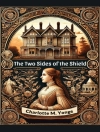In ‘The Brownie of Bodsbeck, ‘ James Hogg weaves a captivating tale that reflects the rich tapestry of Scottish folklore and explores themes of loyalty, identity, and the supernatural. Written in a vivid, narrative style, Hogg employs a blend of realism and fantasy, artfully presenting the story of a reclusive farmer, who encounters a mischievous brownie—a household spirit known in Scottish tradition. This novella contributes to the Romantic literary context of the early 19th century, characterized by a fascination with nature and the mystical elements of rural life, further emphasizing Hogg’s position as a transitional figure between the Enlightenment and Romanticism in Scottish literature. Hogg, often referred to as the ‘Ettrick Shepherd, ‘ was deeply entrenched in the cultural milieu of Scotland, drawing from his own experiences as a shepherd and storyteller. His profound connection to the Scottish landscape and its folklore, coupled with a personal history marked by hardship and resilience, fueled his desire to preserve and articulate the oral traditions of his homeland. Hogg’s life as a laborer and his literary ambition exemplify the complexities of the period, allowing him to interface with both common folk and the literary elite. Readers will find ‘The Brownie of Bodsbeck’ a compelling exploration of myth intertwined with the daily rhythms of rural life, and it serves as a testament to Hogg’s masterful storytelling abilities. This book not only invites readers into the enchanting world of Scottish folklore but also encourages contemplation on the intersection of reality and myth, making it an essential read for enthusiasts of the genre and those intrigued by the cultural heritage of Scotland.
Sobre o autor
James Hogg (1770–1835) was a Scottish poet and novelist who emerged from a humble background as a shepherd to become one of the unique literary figures of the 19th century. His work is strongly associated with the Romantic movement, and he is sometimes referred to as ‘The Ettrick Shepherd’, a nod to his rural upbringing in the Ettrick Valley of the Scottish Borders. Despite little formal education, Hogg developed an impressive literary career, drawing inspiration from the folklore, ballads, and the natural landscape of his homeland. His narrative style often wove together the supernatural with the rustic life, offering a distinct voice in Scottish literature. One of his notable works, ‘The Brownie of Bodsbeck’, is steeped in the supernatural and regional tradition. Set during the Covenanting period, it explores themes of religious persecution and folklore through the tale of a mysterious spirit, reflecting Hogg’s fascination with both history and the inexplicable. Hogg’s literary contributions extend beyond this novel and comprise a wealth mix of poetry and prose, marked by his ability to articulate the voice of the rural community and its rich traditions. His work has been recognized for its originality, imaginative power, and the evocative portrayal of Scottish life and character (Mack, 2004).












